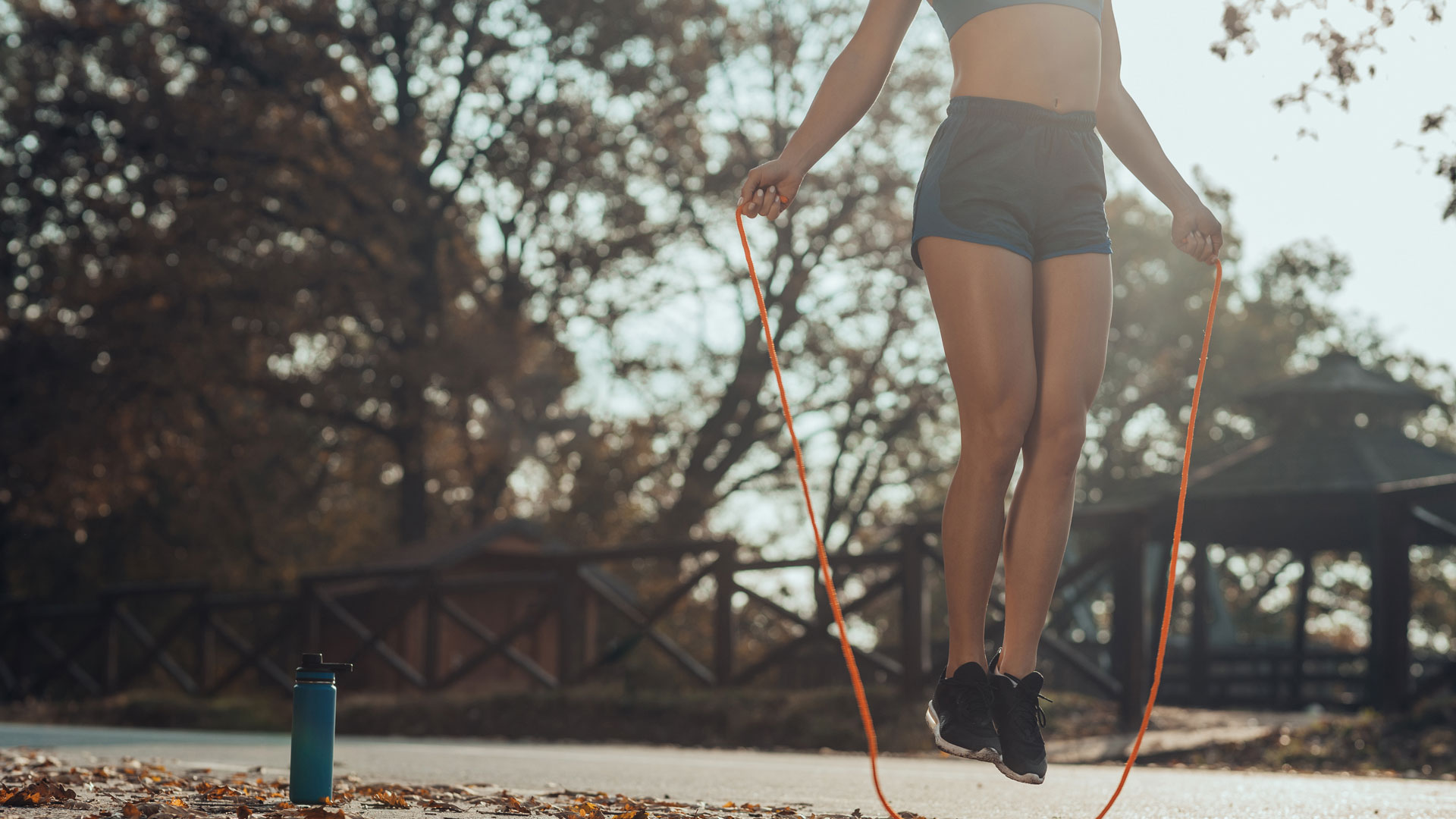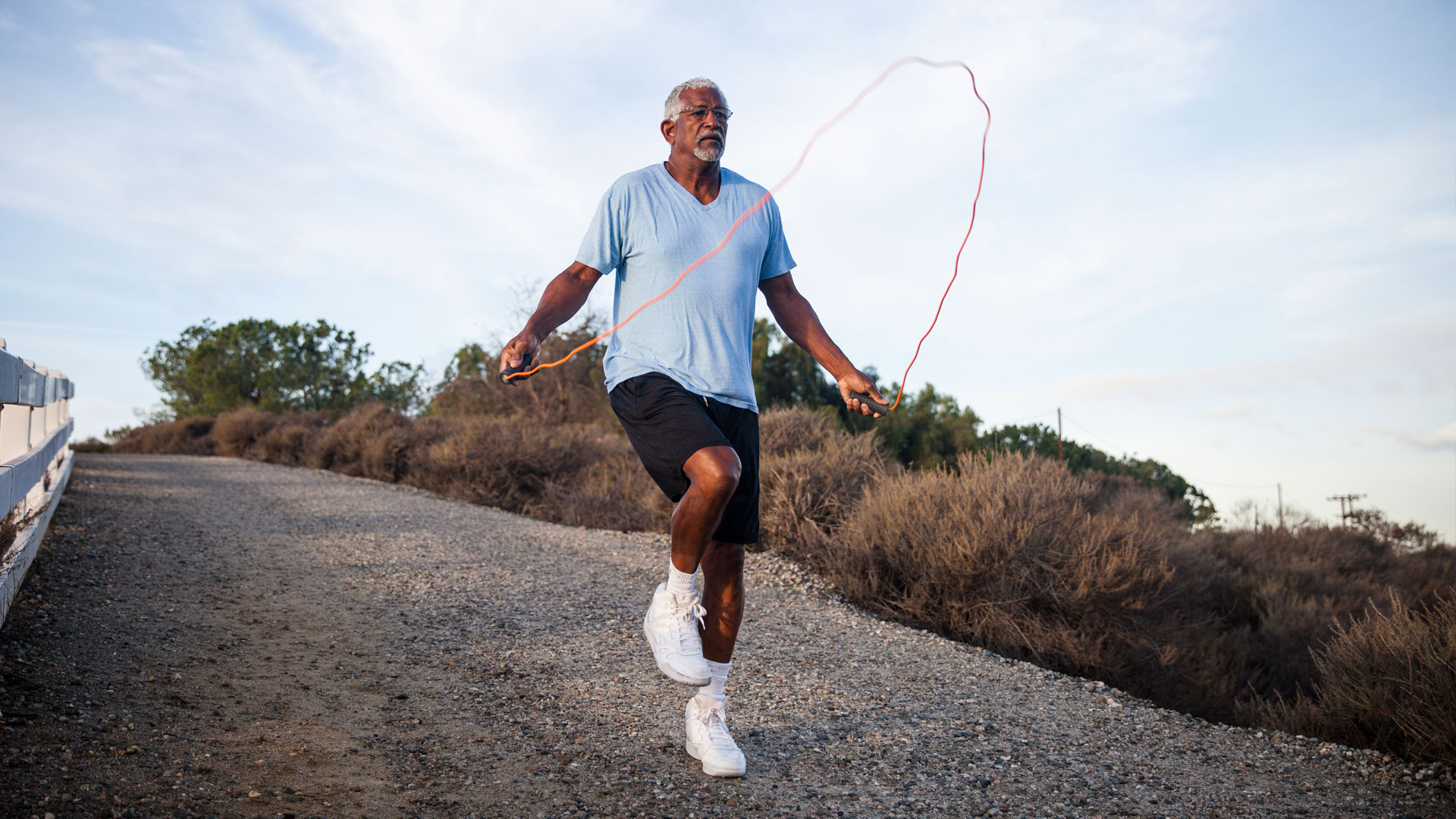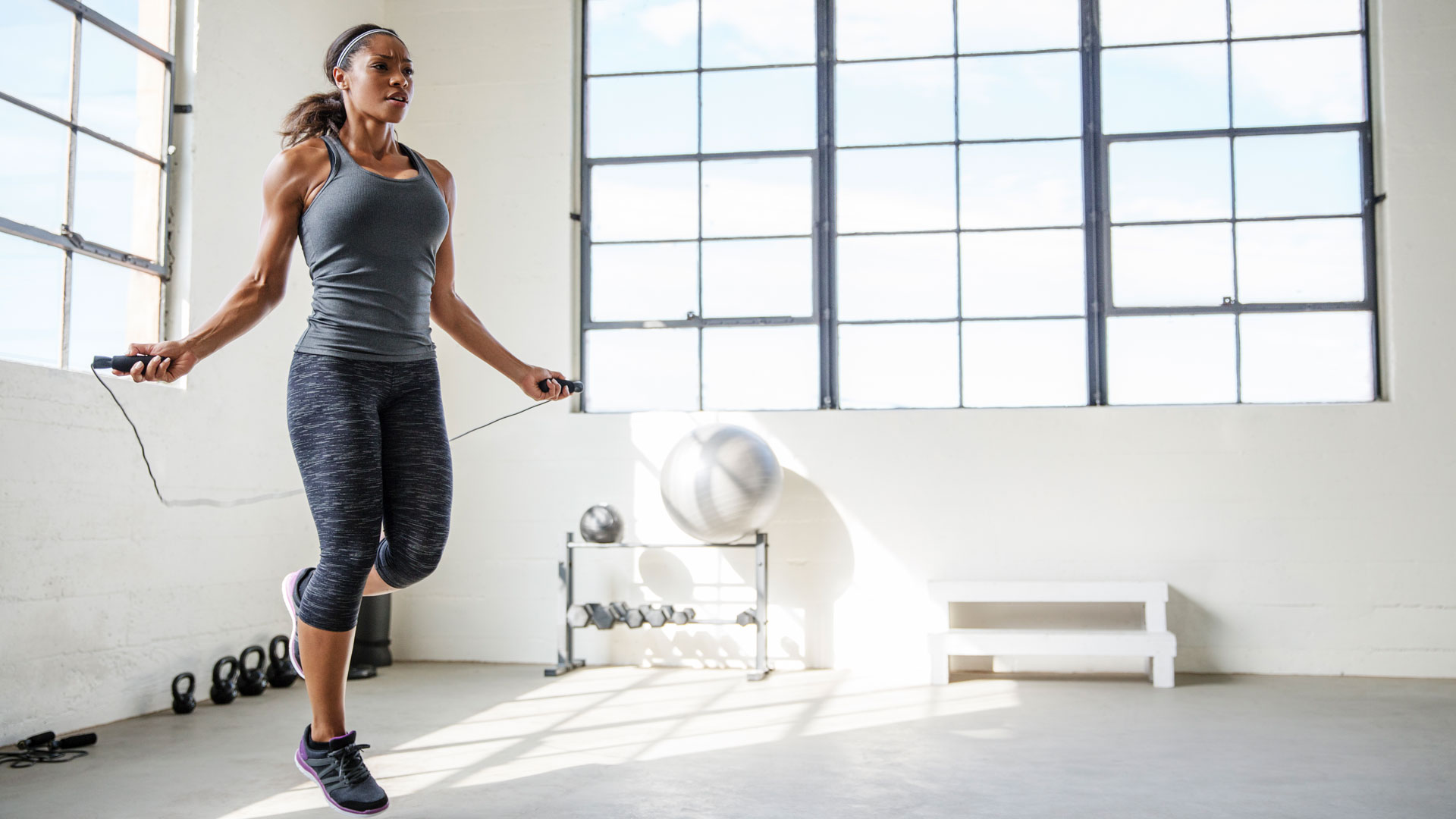What are the benefits of skipping?
We spoke to a personal trainer to find out the benefits of skipping


Start your week with achievable workout ideas, health tips and wellbeing advice in your inbox.
You are now subscribed
Your newsletter sign-up was successful
Jump ropes offer a cheap way to exercise and there are many benefits of skipping including weight loss, improved heart health, and balance and coordination. The setup is so simple, all you need is a pair of trainers, a rope, and space to skip and you’re good to go! You can even buy weighted ropes to add a little more punch to your workout.
While working out on the best exercise machines to lose weight is a great way to contribute to your physical activity for the week, sometimes we just need a way to work out that involves minimal equipment.
The Physical Activity Guidelines for Americans state that for substantial health benefits, adults should do at least 150 minutes to 300 minutes a week of moderate-intensity, or 75 minutes to 150 minutes a week of vigorous-intensity aerobic physical activity. If you’re wondering about the benefits of skipping, we spoke to a personal trainer to find out just how good skipping is for your body and mind.
5 benefits of skipping
Aimee Pearce is a personal trainer with over 15 years of experience working with busy women to help them get stronger and feel better. She explains the benefits of skipping.
1. Improved heart health
“Skipping is great for building muscle endurance and lung capacity. The repetitive jumping movement in skipping will get your blood pumping around your body and also get your lymphatic system kicking in. Your body was made to move! Skipping is a portable and low-cost option for increasing your cardiovascular health and fitness which can reduce your risk of heart disease and stroke.”
2. Great for your mental health
“Exercise releases feel-good hormones called endorphins into your system and there is no better mood booster than learning and mastering a new skill. Regular exercise can also help to reduce symptoms of anxiety and depression. Once you have mastered the basic skipping steps and increased your confidence you can start to learn the more advanced moves such as double unders, fun tricks, and dance steps which is great for your self-esteem.”

3. Bone health support
“Our bone density starts to decline after we hit our 30s so it's important to build up strong bones when we can. The impact of your feet repeatedly hitting the floor during skipping stimulates your bones to grow stronger and denser, protecting you from fractures (at any age) and osteoporosis in later life.”
Start your week with achievable workout ideas, health tips and wellbeing advice in your inbox.
4. Helps balance and coordination
“Skipping is a full-body exercise that requires you to have good footwork. With regular practice, you can improve your balance and coordination. This can lead to better performance in sporting situations or a reduction in falls as we get older. Whatever your fitness goal is, adding skipping sessions into your routine will benefit you.”
5. There are no limits
“Skipping ropes are a super portable piece of fitness equipment that can go wherever you go unlike dumbbells or a treadmill! You don't need any expensive equipment or training to get started with skipping. Ropes are relatively cheap to buy and are good for beginners to get started. Skipping can really help with motivation levels because it is such a fun but effective activity you are more likely to stick with it for longer meaning you start to see results quicker.”
Pearce adds, “You don't need to be good at skipping to benefit from your skipping sessions. You can start by adding in a few minutes of skipping each day, even if you just do this you will get the benefits of skipping. If you want to progress you can build up to adding skipping into any other workouts you do. Adding in a skipping option during a circuit session at home will really increase the intensity of your workouts.”
“Skipping will benefit you at any age and whatever your fitness level. Start for a few minutes a day with the aim of building up the length and complexity of your sessions gradually over time. Have fun and laugh at your mistakes! Filming your sessions is a fun way to track your progress and see how far you have come which can be great for your motivation levels and showing off your new skill to your friends and family!”
Is skipping good for weight loss?

Pearce explains the impact of skipping on weight loss. “Skipping is a moderate to high-intensity movement which is one of the best ways to lose weight. Due to the fact that skipping is a full-body movement, it uses a lot of energy and therefore calories. Skipping, when combined with other healthy lifestyle choices, for just a few minutes each day can give quicker weight loss results than running twice a week.”
“Shorter but higher intensity exercise sessions where skipping is incorporated will burn more calories than a longer but lower intensity activity such as walking, making it a good choice for those that are short on time. Combined with other healthy lifestyle choices, skipping is a great, fun addition to your weight loss plan.”
If you’re wondering how many calories you can burn with skipping, that will depend on your weight, exercise duration, and intensity.
For example, the American Council on Exercise calculator shows that a 200-pound person can burn 362 calories from 20 minutes of jumping rope quickly, or 241 calories when jumping rope slowly. Therefore, adding skipping to your daily routine can help contribute to achieving a calorie deficit, which is needed for weight loss.
For example, if you solely rely on skipping to burn calories but continue to consume a high-calorie diet that puts you in a calorie surplus, you won’t lose weight. Sustainable weight loss involves a well-rounded, healthy lifestyle, which includes eating nutrient-dense food, exercising regularly (incorporating strength training), getting enough sleep, and managing your stress levels.
For more on sustainable weight loss, check out walking vs running: which is better for weight loss? Or, find out what happens when you reach a weight loss plateau.
Catherine is a freelance journalist writing across titles such as Verywell Health, Healthline, The Daily Telegraph, Refinery29, Elle, and Vogue. She specializes in content covering health, fitness, wellness, and culture.
A once reluctant runner, Catherine has competed in 30 running events in the past five years and looks forward to one day running the London Marathon.
